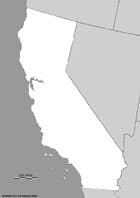A veto from California Gov. Arnold Schwarzenegger may be the only chance left for stopping a California ban law on water softeners.
“This is it,” said Water Quality Association (WQA) Executive Director Peter Censky. “What the governor does may define the future of softening.”
The bill, AB 2270, is expected to pass the state assembly along a party line vote as early as next week. WQA members are strongly encouraged to contact the governor’s office to register their opposition.
The bill recently passed out of the Senate Appropriations Committee by party line vote. It would give unelected water boards the power to decide whether towns can ban softeners. If a town chooses to announce a ban, policing power to enforce it would be necessary.
The proposed bill would overturn decades of efforts that have been looking for sensible solutions to the issue of salinity, Censky said.
The state and researchers in the water treatment industry began looking at the problem together in 1978. That is when California created efficiency standards for water softeners. The state set up guidelines to make sure that before a community bans water softeners, independent scientific studies show such a measure will significantly improve local ground conditions.
The current proposal to ban water softeners would overturn this approach. Under the bill, water boards—which are not answerable to the voters—would be able to simply issue a “finding” that they believe bans would be helpful. In fact, the statewide board could issue a finding to allow any community in the state to implement a ban.
Water softeners have made a convenient target for regulation, said Censky, since they are so visible. However, studies have shown that the vast majority of salinity in the ground in California—close to 90%—comes from natural processes, mainly farming techniques and other sources. Water softeners contribute only slightly more than one-tenth of the salt, a point being stressed with the governor’s office.
While salinity is a serious problem, the industry is pointing out to the governor the benefits of softeners should also be considered.
According to a New Mexico State University study, water heaters can require up to 30% more power to operate with hard water. Large appliances wear out faster when forced to operate with hard water. Clothing and household linens are harmed by hard water. The minerals in hard water act as an abrasive on clothing, causing fibers to break.
The Pacific Water Quality Association is asking water professionals to write a letter of opposition to Gov. Arnold Schwarzenegger on your business letterhead. A template of a letter can be found at www.pwqa.org by clicking on “May 2, 2008 Update.”
Source: WQA


